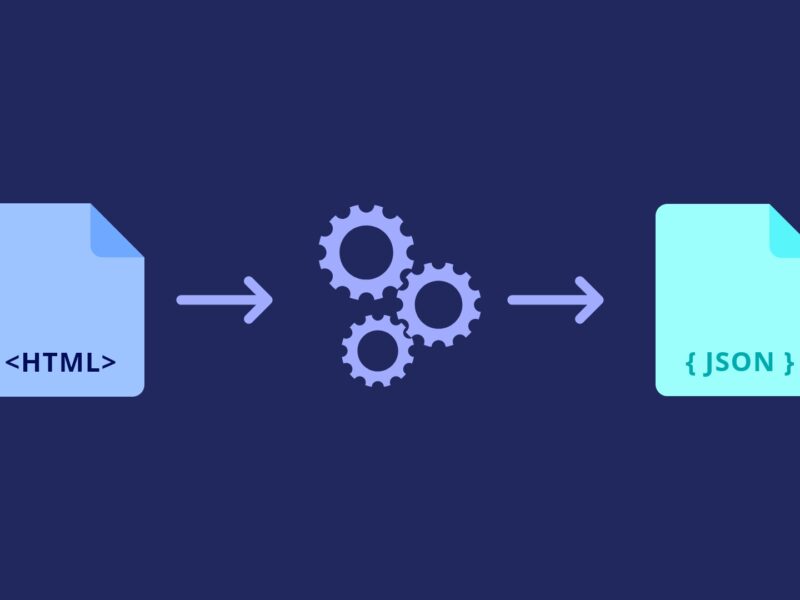Every experienced Internet user, and especially the site owner, simply has to know what a parser is. This tool helps to maintain the information on your resource in proper form and process data on third-party web pages.
Without using such a utility, the processes of searching, structuring and exporting data in the required format take a significant amount of time and effort. And this, given the modern pace of life, is an unacceptable luxury.
The concept of data parsing
Parsing is a way of indexing information with its further transformation into another format, and in some cases even another kind of data.
For example, let’s take an HTML file. Parsing will allow you to convert the information from this file into solid text, thereby making it readable. Another option is to transform HTML into JSON for subsequent work in an application or script.
However, this article will consider a narrower scope of parsing – data processing on web pages. In other words, parsing involves the collection and systematization of data that is on the site.
Now about what a site parser is. This is a special program that collects the necessary information according to pre-established criteria.
At the same time, parsing is a legal activity. The legislation prohibits the following similar manipulations:
- hacking a website – unauthorized receipt of information from user accounts, etc.;
- DDOS attacks – when parsing overloads a site;
- plagiarism – illegal use of copyrighted photos, notarized original texts, etc.
Parsing is legitimate if it collects data from open sources. Such information can be typed with your own hand, so parsers only simplify these numerous actions and increase the speed of their execution. In addition, the mistakes inherent in human work are minimized. Thus, there are no illegal acts in pure parsing.
The main purposes of using the parser
What tasks can parsing solve? The overabundance of information inherent in the modern Internet is so huge that a person is no longer able to process it with his own hands. There are number parsers, product parsers and many other options, each of which serves a specific purpose. So, parsing is designed to solve the following main tasks:
- Analysis of pricing policy. To determine the average values of the cost of a product, it is necessary to base on the corresponding indicators of competitors. But in some cases, there may be too much information to collect quickly on your own.
- Observing changes. Parsing allows you to continuously monitor price changes and the appearance of new products from competitors.
- Website optimization. We are talking about finding non-existent pages, duplicates, insufficiently complete descriptions, identifying the absence of certain characteristics and many other processes that are easiest to carry out using parsing.
- Filling of product cards. The most illustrative example is a new website, the formation of an information base of which can take an extremely long time. Often, parsing from foreign sites is used, and the collected texts are automatically translated into Russian. As a result, the user acquires full-fledged descriptions.
- Creation of databases of possible clients. For example, parsing can help in compiling a list of people making decisions in a particular industry or place.
- Search for technical errors. Thanks to parsers, it is possible to collect data on the presence of pages with a 404 error, redirects, non-working and so-called broken links, etc.
- End-to-end analytics. Advertising and sales parsing. In this case, the system connects to the sites and CRM, and then automatically combines information about budgets, clicks, transactions and calculates the payback of each company.
There is also a so-called gray parsing on the Internet. It can include downloading data from competitors’ websites. But this option is not applicable in all cases. Moreover, it is not a ban on certain methods of parsing, but the fact that its very use for solving certain tasks is assessed as immoral and unacceptable action.


 Importance of Effective Corporate Communication
Importance of Effective Corporate Communication 